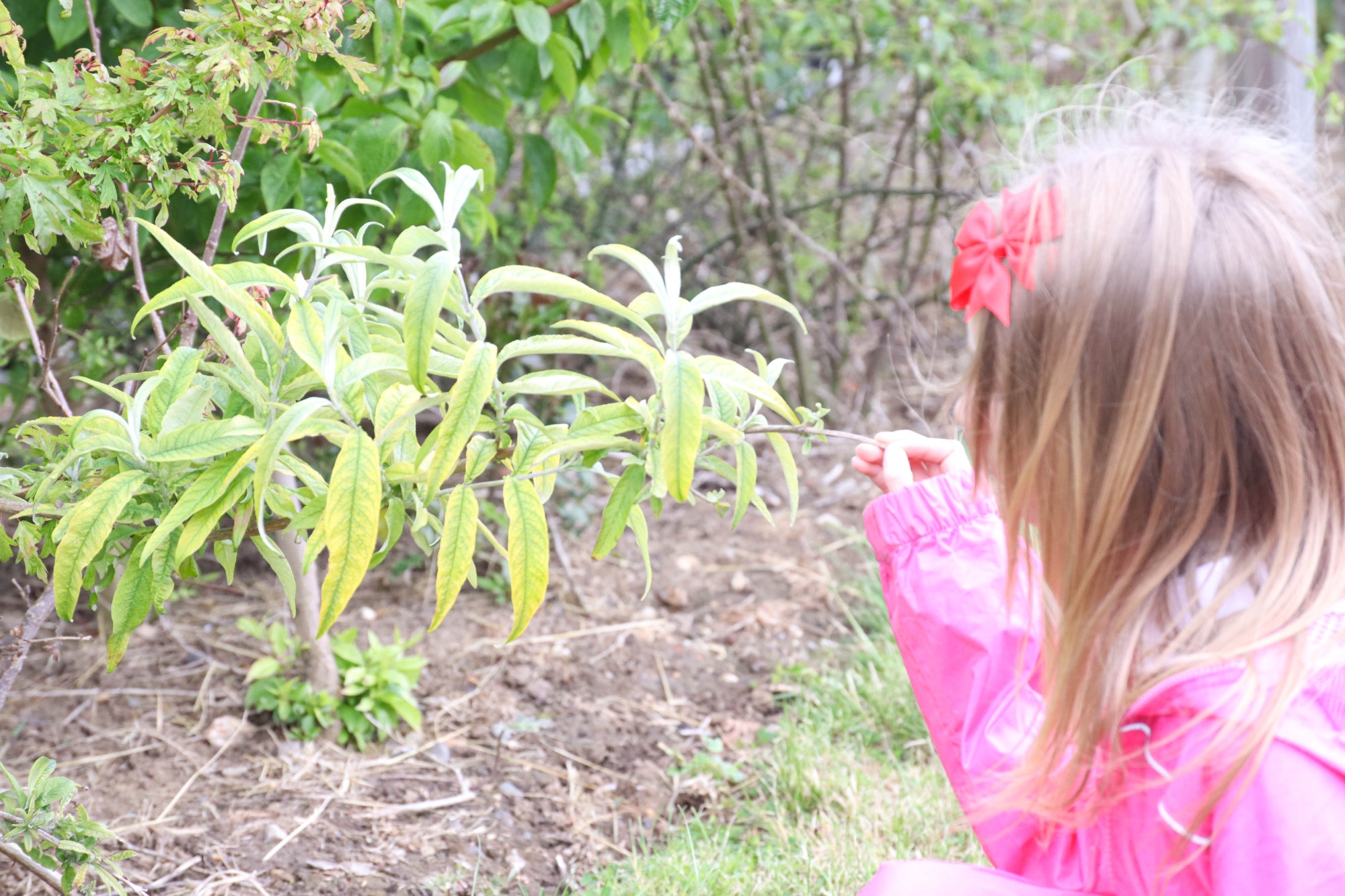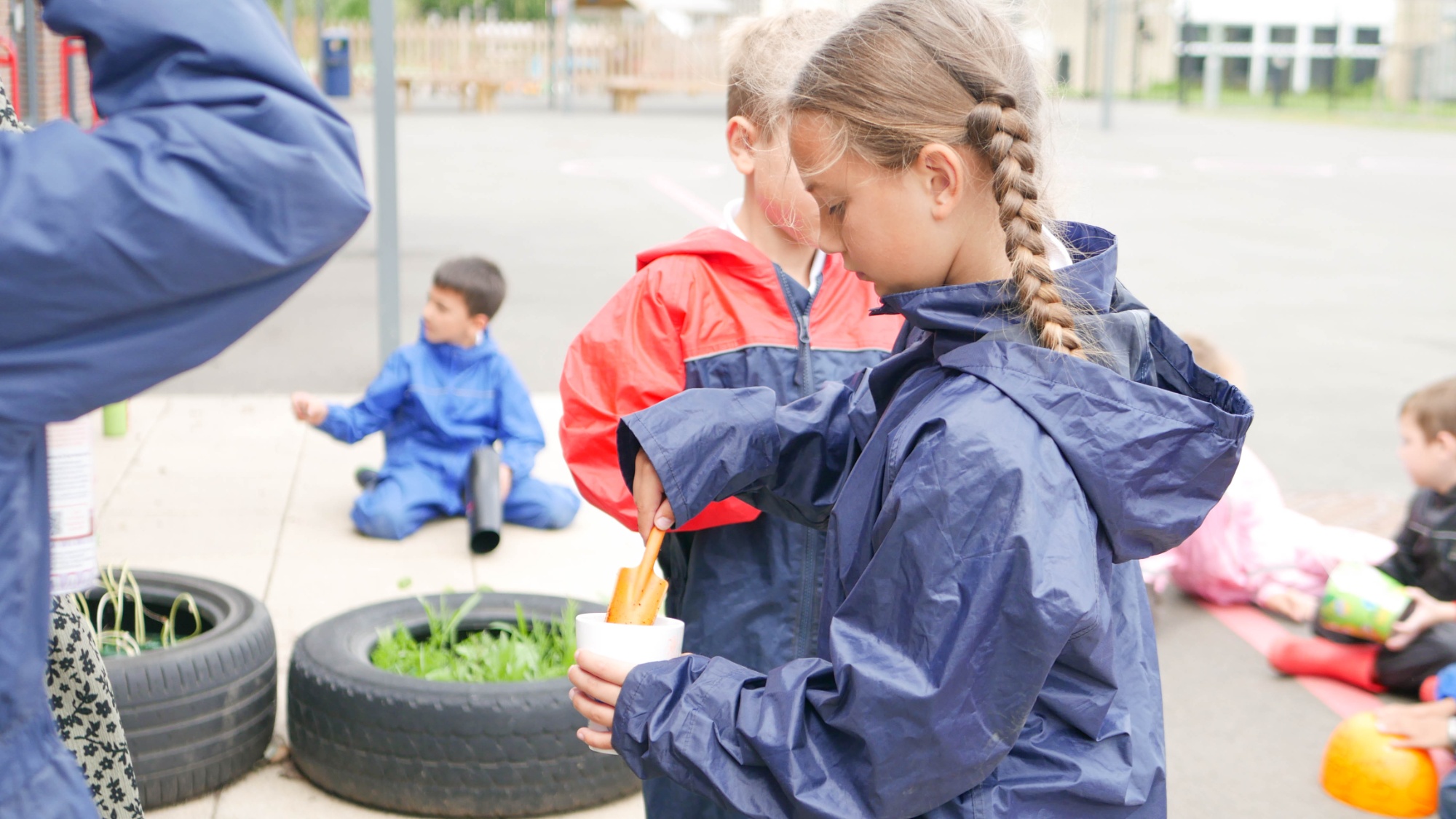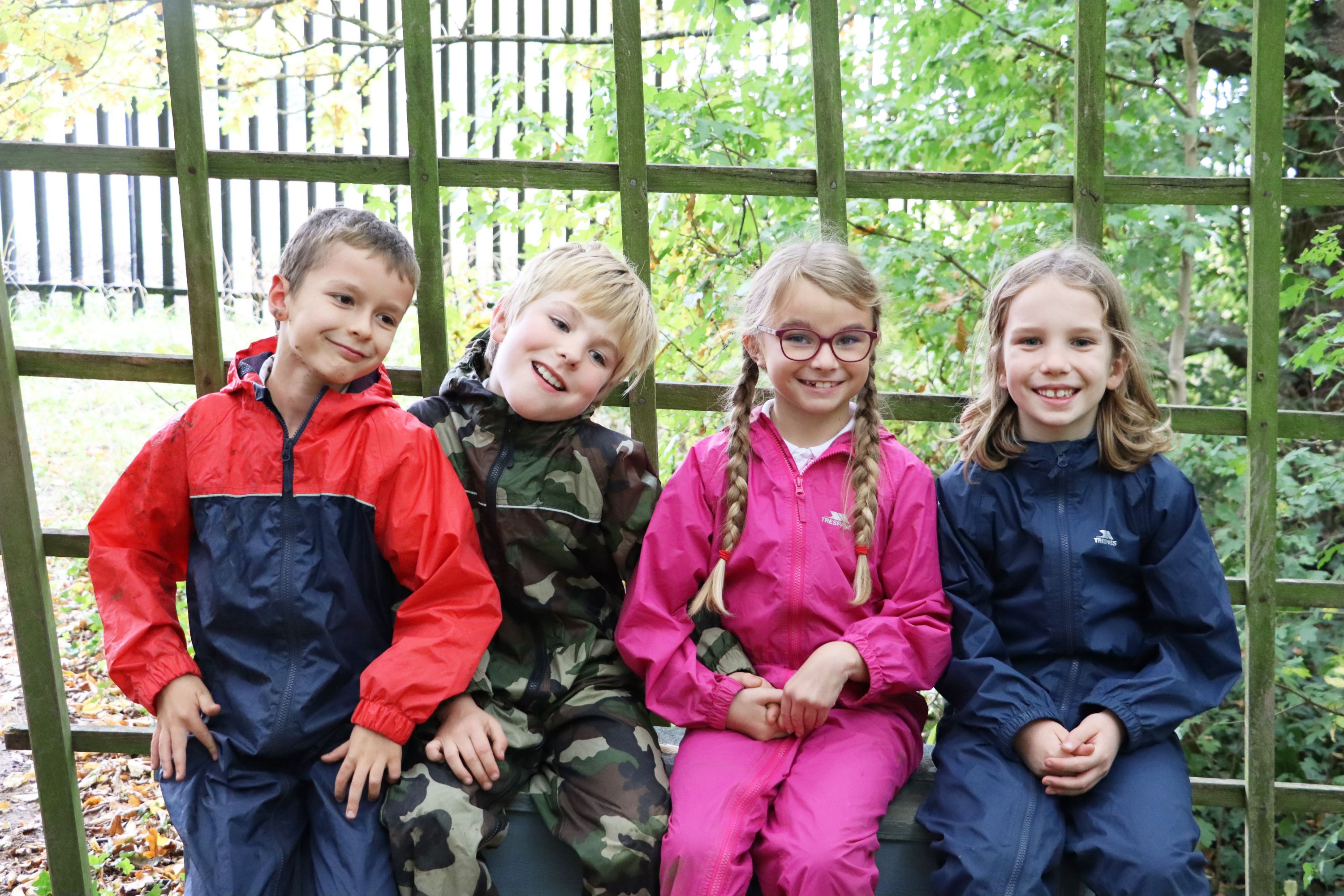Outdoor Learning
Subject Leader: Mrs H Palmer - palmerh@saintgeogrescofe.kent.sch.uk
Forest School helps to increase our pupil’s confidence, problem-solving and self-esteem through exploration, and team building and encourages them to learn how to access and nurture the environment.
Intent
Children are given various opportunities to engage in activities which will develop their appreciation of the natural environment. Planned activities and child-initiated exploration will enrich children’s learning across all areas of the curriculum.

Implementation

All classes will be allocated one session of Forest School each week, which will take place in our Forest School area. Science learning is linked closely to Forest School/outdoor learning to ensure children can practice these scientific skills independently.
Wildlife area to be open during playtimes for all children.
Annual trips to farms, the beach and other locations offer additional outdoor learning opportunities. Activities are planned to enhance learning across all subjects.
Impact
Children will develop an appreciation of seasonal change, plant growth, animal habitats and natural materials.
Children will be able to talk about the features of different environments and appreciate the impact we can have on the environment both locally and globally.
Children will develop a sense of responsibility for looking after their immediate environment, linking to our Christian Value of Stewardship.
Children will develop their resilience and problem-solving skills as well as be given the opportunities to work in a team.

Benefits of Forest School
Forest School promotes the holistic development of a child. It is particularly suited to children who struggle, for various reasons, to learn in a traditional classroom setting, as well as providing all children with a positive outlook which is then transferred to the classroom where they are found to be more motivated and have increased concentration levels.
Physical Development: Development of gross motor skills, building muscle, spatial awareness, balance, coordination and stamina. Fine Motor skills are enhanced when using hand tools as well as hand-eye coordination.
Emotional and Mental well-being: Spending time in woodland areas is calming and reduces stress.
Social Development: Development of communication and language skills, the ability to share, take turns and work as a team.
Behaviour: Research has shown that being outside has a calming influence on the brain, thereby improved behaviour is noticed.
Self-Regulation: The ability to recognise and manage risk as well as understand the reason for boundaries and rules.
Increased self-confidence and self-esteem: Learning new skills, and taking risks when using hand tools develops a sense of responsibility and pride. Increased knowledge, awareness, respect and understanding of the natural environment.
Creative Development: Through free play and exploration, children become naturally inquisitive of the natural environment, using it as a provocation for storytelling and role play.
Curriculum Links: The ethos and principles of Forest School support many of the Early Years Foundation Stage Curriculum and the National Curriculum for Key Stage 1 and Key Stage 2 and complement the topic-based curriculum we have at Saint George's.
Extra Resources
- 11 DIY Forest School Activities
- Inspiration and Ideas for Busy Parents
- Tree Tools for Schools
- Art Activities: Leaf Rubbings
- DIY Stick Dream Catcher
- Muddy Faces
